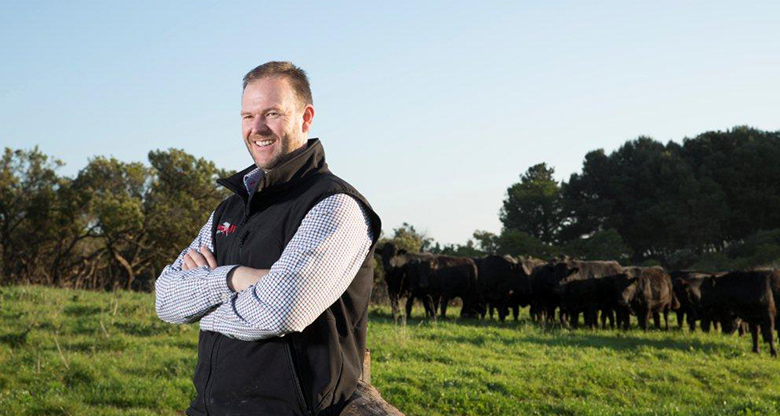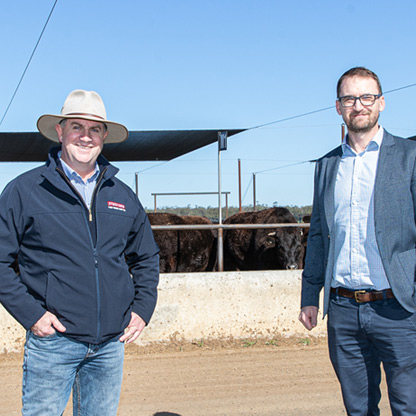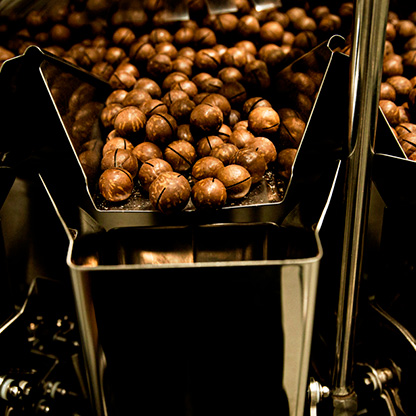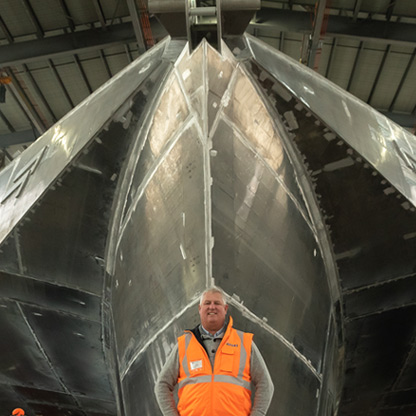The Mayura Station story starts in the 1970s, when Adrian De Bruin purchased a small block of land to grow pine saplings and treelings and germinate small pines to sell to local government. Twenty years later, Adrian had grown the Mayura property portfolio significantly, and Adrian was eager to try something new.
“We considered different specialty livestock such as farming goats, or even ostriches at one point. However, we wanted something that set us apart, but has the market fundamentals to be successful in the long-term,” he says
“Dad had heard from some contacts there were some Wagyu cattle that had left Japan, which was very rare back then, so, he took a risk and bought a plane load into Australia.”
Adrian’s original vision was to produce Wagyu bulls to cross with Angus cows. Scott had a different vision: he wanted to sell Wagyu beef meat.
“Dad said, if you want to try that, you can do it yourself. He was supportive, but it was my experiment. He mentored me through the process, and really helped me get to where I am today,” Scott says.
While other producers were looking at Wagyu crosses, Scott was always interested in breeding 100% Wagyu cattle known, as fullbloods.
“We had, and still do to this day, a very strong commitment to excellence in everything we do, and for me that included producing the best breed of beef, which is full-blood Wagyu.”
In early 2000, Scott set out to sell his first Wagyu into the Australian market.
“No one knew what Wagyu was! I started by grain-feeding only 17 head, when it came to selling the first batch of beef it was tough on the domestic market, because not many chefs or restauranteurs had experience with Wagyu. Moving forward a few years, mad cow disease hit and the market changed entirely. High end markets like Singapore had previously seen Australian beef as poor quality, but with supply so low from their traditional supply countries, we had an opportunity to get in the door and show them how good our product could be.
“Things started to pick up from there, and Dad realised what I was doing was actually working, so we decided to merge the separate businesses into a joint venture. I had the customers and the marketing experience, and Dad had the capital.”
In 2005, Scott and his Dad decided to focus solely on Wagyu, and divested their sheep and prime lamb operations.
“We started with only 25 female fullblood Wagyu’s in 1998. We are now running 3,500 breeding females and run one of the largest 100% Wagyu programs in the world.”
Mayura Station has invested significantly in research and development into improving the genetic performance of their Wagyu cattle, this is reflected in the high performance of their livestock and the market leading status that the Mayura brand has achieved.
One of the main goals of the genetic improvement program has been to improve marbling performance with early maturation.
“Traditionally, you feed your young Wagyu cattle for 600 days, so we were carrying them on our books for three financial years, which can be a real burden with the financials. So, we took a look at genetically improving our herds for early maturity, through performance breeding. They’re now maturing for harvest at 24 months, compared to industry averages around 36 months. This was achieved while simultaneously increasing marbling performance, rib eye area, carcass weight and retail beef yield. We’re really at the forefront of the industry,” Scott says.
The Mayura brand has become synonymous with high performance and due to the increased interest in the genetic improvements achieved with their cattle, they took the strategic decision to add another division to the business, selling genetics. This has been well received by the Wagyu industry and a number of record prices have been achieved.
“We’ve sold a heifer for $280,000, the highest priced bovine female ever sold at public auction in Australia (beef or dairy), and a straw of semen recently broke a world record, selling for $70,000. Mayura also hold the record for the most expensive Wagyu bull sold at public auction - $180,000,” Scott says.
Scott and Adrian started working with CommBank in the early days of building their property portfolio.
“As we started to grow and expand, we didn’t fit a particular ‘customer mould’ at the Bank. We had a number of different business ventures, and not all were successful at once. But CommBank worked with us to provide the support we needed, and recognised where we were going and our growth trajectory,” he says.
Mayura is part of the Specialised Agribusiness Solutions division of CommBank, which was established for customers like Mayura with large and complex business structures.
John Moffatt, Director of Specialised Agribusiness Solutions for South Australia, says the bank has worked closely with the De Bruins.
“We were there when Scott and his dad decided to transition from the timber plantations into Wagyu, and helped them structure the business so it was set up for success,” John says.
“Recently, we’ve provided them with a new facility to build a new state-of-the-art feedlot, that will enable Mayura to double their annual production of Wagyu.”
Scott says the relationship with the Bank has stood the test of time.
“Our bankers John Moffatt and John Norman have been terrific throughout it all. They’ve been with us through the ups and downs, which has just built a stronger relationship.”




